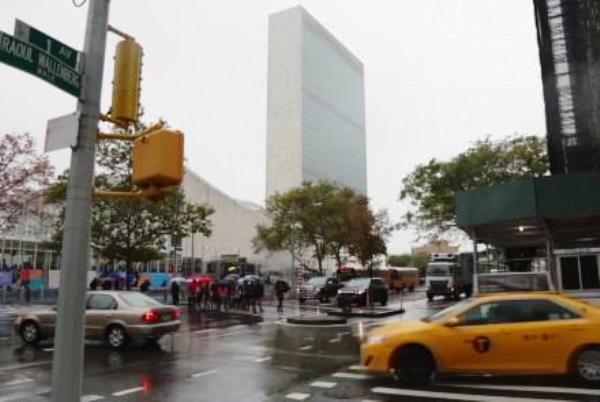A divided United Nations Security Council on Friday failed for a second time to agree on extending humanitarian aid deliveries to Syria’s mainly rebel-held northwest from Turkey as the current UN mandate was ending, leaving nearly three million people at risk of losing aid.
Russia and China vetoed a UN resolution backed by the 13 other Council members that would have maintained two crossing points from Turkey for six months.
A Russian-drafted resolution that would have authorized just one border crossing for a year failed to receive the minimum nine “yes” votes in the 15-member Council, with only four countries voting in favor while seven voted against and four abstained.
Diplomats said Germany and Belgium, who insist two crossings are critical especially with the first COVID-19 case just reported in Syria’s northwest, circulated a new text.
That resolution, obtained by The Associated Press, would extend the mandate through the Bab al-Hawa crossing for a year and the mandate for the Bab al-Salam crossing – which Russia wants to eliminate – for three months to wind up its activities.
Council members continued discussions Friday night and diplomats said a meeting was possible on Saturday to vote on the German-Belgium draft, as well as likely Russian amendments.
Friday’s vote capped a week of high-stakes rivalry over cross-border aid.
Russia, Syria’s closest ally, has argued that aid should be delivered from within Syria across conflict lines.
But the UN and humanitarian groups say aid for 2.8 million needy people in the northwest can’t get in that way.
The initial German-Belgium resolution authorizing two crossings for one year won support from 13 of the 15 Council members on Tuesday but was vetoed by Russia and China.
A Russian draft resolution authorizing one crossing for six months failed to get the minimum nine “yes” votes on Wednesday.
And a similar Russian amendment to the latest German-Belgium resolution was dramatically rejected on Thursday, getting only two “yes” votes – from Russia and China.
In January, Russia scored a victory for Syria, using its veto threat to force the Security Council to adopt a resolution reducing the number of crossing points for aid deliveries from four to two, from Turkey to the northwest.
It also cut in half the yearlong mandate that had been in place since cross-border deliveries began in 2014 to six months.













